Undergrads Put a Pop-Up Restaurant in a Dorm
‘We just love cooking,’ said Allen Park ’23
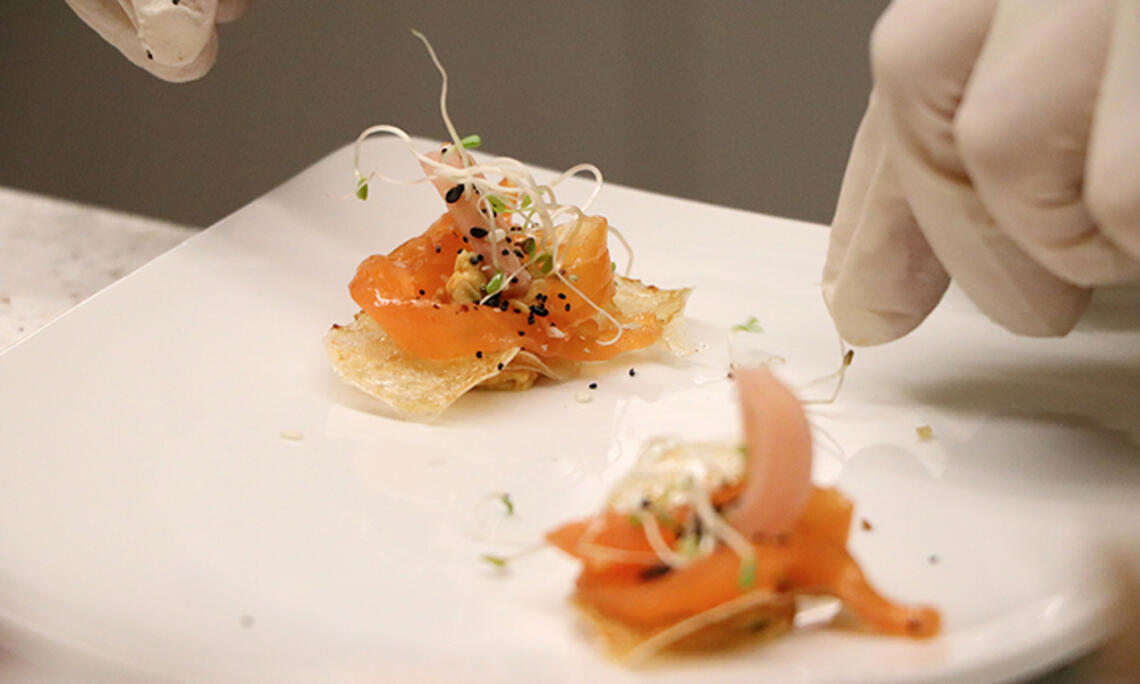
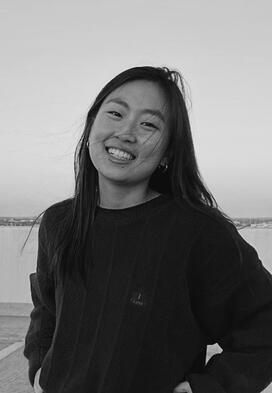
With dimmed lights, soft jazz, and white tablecloths, 1903 Hall’s basement was transformed from a laundry-room hallway into a cozy restaurant for two nights in February and March. Student patrons were greeted by chefs who doubled as servers, escorted to candle-adorned tables, and handed a set three-course menu. Through 1903’s open kitchen, diners were able to watch as six of their fellow students prepared and served sous vide duck leg, cured salmon atop “invisible” chips, and caramelized poached pears.
Princeton Pop Up, a student-run fine-dining service, was started by Allen Park ’23. Park, a longtime cooking enthusiast, was initially inspired by a similar group at Yale. To gauge interest, he sent an email to a Princeton listserv asking for campus cooks, and he received a number of responses. After a series of low pressure, Chopped-esque tryouts, Park formed a core team with five other students: Adrian Rogers ’23, Matthew Pickering ’24, Ethan Arrington ’25, Felix Xu ’25, and Sophie Leheny ’25.
The student chefs came from a range of culinary backgrounds, from scrambling eggs at 2 years old to working at bakeries and professional-level restaurants. Despite their varying levels of experience, they all had one thing in common: their love of food.
“We just love cooking,” Park said. “That is a big thing that brings us together and why we want to do this, because food brings everyone together.”
When Rogers makes recipes on his own, he said, he locks himself in his room for hours with nothing but a pen and paper. But with P Pop Up, it was much more of a collective effort.
“P Pop Up is very collaborative,” said Rogers. “You can communicate with other people, and just having that group to influence and bounce ideas off each other is really wonderful.”
Once the menu was set, the weeks before the service were packed with recipe testing, logistical concerns, and afternoons lugging equipment back and forth from Park’s room to the basement.
“It was a very long process — we were kind of adjusting things until days before,” said Arrington. The service itself was another full-day affair. “We didn’t stop moving until 9 p.m. when we closed, and even then there was cleanup,” he added.
For Pickering, the day began in the Forbes College kitchen, preparing sourdough, and ended with a hectic evening of waiting tables. But the hours of work paid off.
“The most rewarding part is being in the middle of service, stressed out of your mind, and then looking over and seeing everyone’s enjoying themselves,” he said. “It’s one thing to do that as an employee at a restaurant, but to know that you’re sort of co-running the whole affair is very special.”
Each service saw 18 diners, at tables for two. P Pop Up charged $28 per person, but added on the menu that, as a fully student-funded service, tips were greatly appreciated. Although Park said that they didn’t quite break even this time around, they hope to later become profitable enough to invest in better equipment.
Though both services received an overwhelmingly positive response from student diners, the team agreed that operating out of 1903 basement was not a sustainable model. After appealing an initial cease-and-desist from the Office of the Dean of Undergraduate Students, the group received approval to become an official club.
Rogers, the self-described “zaniest” of the group, has lots of ideas for the future of P Pop Up. The “invisible” potato chip appetizer, a concept initially conceived of by Rogers, only scratches the surface of his culinary aspirations. Whether plating desserts table-side or serving edible terrariums, Rogers hopes to give patrons a service that they wouldn’t be able to get anywhere else. “P Pop Up is a chance for students to kind of really push the boundaries for what culinary experience can be,” he said.

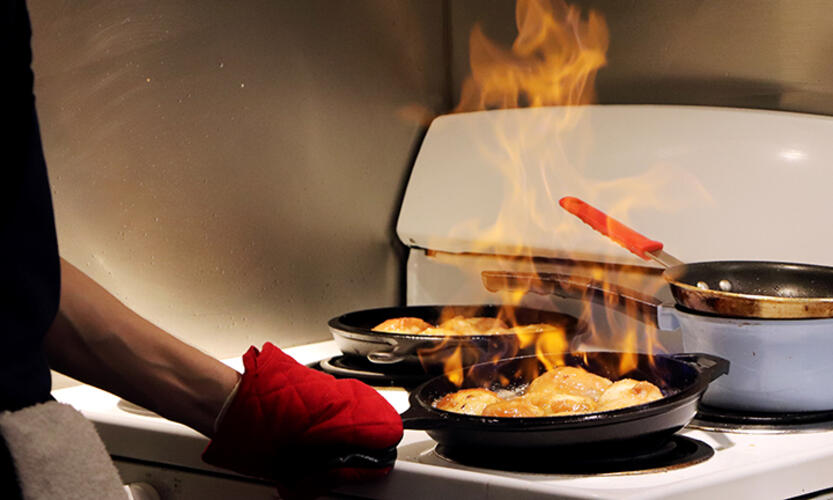
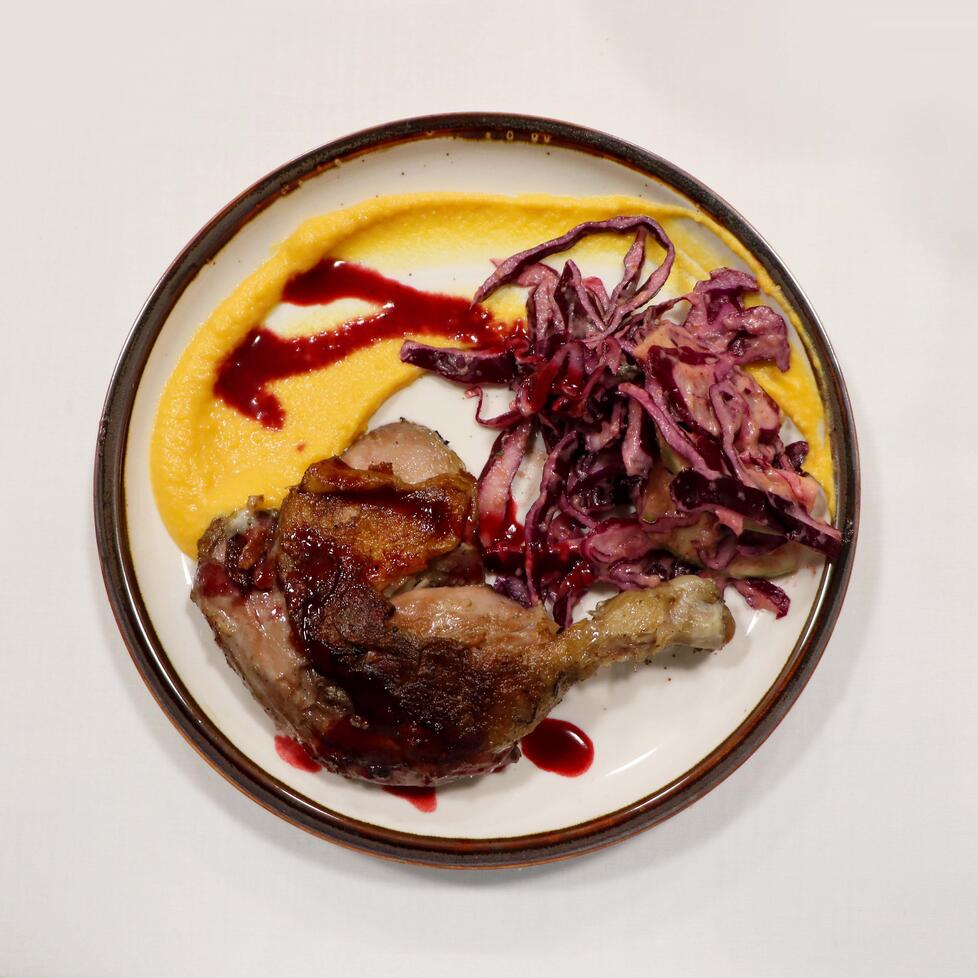







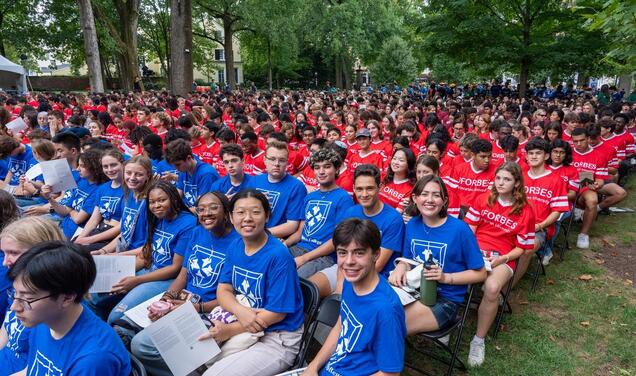

No responses yet